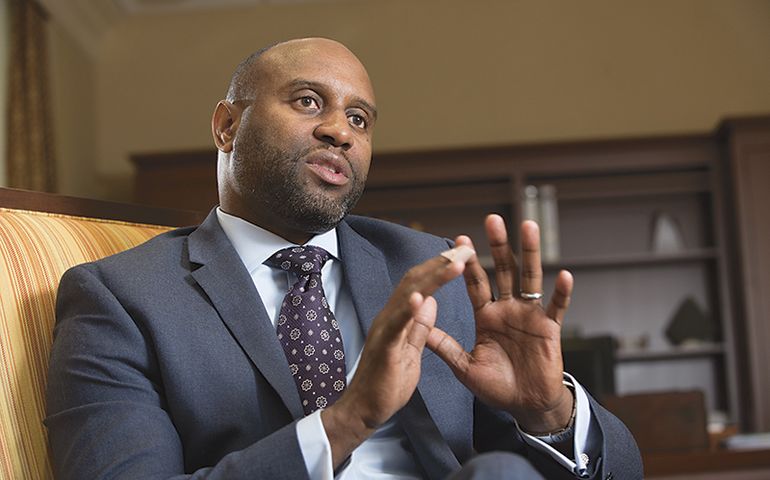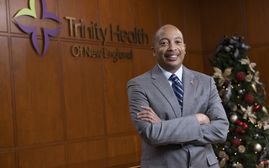Processing Your Payment
Please do not leave this page until complete. This can take a few moments.
-
News
-
Editions
-
- Lists
-
Viewpoints
-
HBJ Events
-
Event Info
- 2024 Economic Outlook Webinar Presented by: NBT Bank
- Best Places to Work in Connecticut 2024
- Top 25 Women In Business Awards 2024
- Connecticut's Family Business Awards 2024
- What's Your Story? A Small Business Giveaway 2024 Presented By: Torrington Savings Bank
- 40 Under Forty Awards 2024
- C-Suite and Lifetime Achievement Awards 2024
- Connecticut's Health Care Heroes Awards 2024
-
-
Business Calendar
-
Custom Content
- News
-
Editions
View Digital Editions
Biweekly Issues
- April 29, 2024
- April 15, 2024
- April 1, 2024
- March 18, 2024
- March 4, 2024
- February 19, 2024
- February 5, 2024
- January 22, 2024
- January 8, 2024
- + More
Special Editions
- Lists
- Viewpoints
-
HBJ Events
Event Info
- View all Events
- 2024 Economic Outlook Webinar Presented by: NBT Bank
- Best Places to Work in Connecticut 2024
- Top 25 Women In Business Awards 2024
- Connecticut's Family Business Awards 2024
- What's Your Story? A Small Business Giveaway 2024 Presented By: Torrington Savings Bank
- 40 Under Forty Awards 2024
- C-Suite and Lifetime Achievement Awards 2024
- Connecticut's Health Care Heroes Awards 2024
Award Honorees
- Business Calendar
- Custom Content
Trinity Health CEO: Stay-at-home pandemic messaging may create other health risks
 HBJ Photo | Steve Laschever
Dr. Reginald Eadie, CEO of Trinity Health of New England
HBJ Photo | Steve Laschever
Dr. Reginald Eadie, CEO of Trinity Health of New England
Emergency rooms across the country have seen drastic declines in patient volumes during the COVID-19 pandemic, and the situation has led one of the region’s health system CEOs to probe what’s going on.
Dr. Reginald Eadie, CEO of Trinity Health of New England, said his system’s hospitals, which include the flagship St. Francis Hospital and Medical Center in Hartford, have experienced a 40% to 50% decrease in emergency room visits during the pandemic.
While patients may understandably be avoiding routine doctor visits due to fears of catching or spreading COVID-19, Eadie said such a significant drop in emergency room traffic surprised him, since presumably, many patients who end up there have serious or life-threatening conditions and injuries.
“What happened to the heart attacks, strokes, kidney failures etc., that existed prior to the pandemic?” Eadie asked during a recent interview.
On a hunch, he called four funeral homes, including two in Connecticut, asking about at-home deaths.
One funeral home director told him that since mid-February, his facility was seeing about 20 at-home deaths a month, up from a typical average of seven to 10.
Eadie suspects that trend may be happening across the country, or at least in regions the virus has hit hardest.
“We have a country full of sick people who are sitting at home,” he said.
He thinks part of the problem is messaging that the public is seeing and hearing.
For example, he recently saw a public service announcement on TV that displayed the following message: “Staying home saves lives. Whether you have COVID-19 or not, stay home! We’re in this together.”
“My mother, a widow, is home alone and I would never want her to see that ad,” Eadie said.
Eadie has seen similar messaging in other places as well. While it’s well intended, the ads could also be misinterpreted, perhaps conveying to a patient who truly needs urgent medical care to try to stick it out at home instead.
“Not everyone needs emergency room care, but if they do and stay home, they are getting sicker and sicker,” he said. “Staying home and being fearful does not clean out arteries or colons or gallbladders.”
(Many hospitals, including St. Francis, ask that patients who suspect they’ve been exposed to the virus call ahead before visiting any provider, clinic, urgent care or emergency room.)
Eadie said he has had discussions with fellow hospital leaders about trying to insert more nuance into pandemic public messaging about what residents “should and shouldn't do in face of COVID-19.”
He’s also further researching what’s happening to sick people who don’t visit the ER.
Related Content

2022 Giving Guide
This special edition informs and connects businesses with nonprofit organizations that are aligned with what they care about. Each nonprofit profile provides a crisp snapshot of the organization’s mission, goals, area of service, giving and volunteer opportunities and board leadership.
Learn more
Subscribe
Hartford Business Journal provides the top coverage of news, trends, data, politics and personalities of the area’s business community. Get the news and information you need from the award-winning writers at HBJ. Don’t miss out - subscribe today.
Subscribe
2024 Book of Lists
Delivering Vital Marketplace Content and Context to Senior Decision Makers Throughout Greater Hartford and the State ... All Year Long!
Read Here-
2022 Giving Guide
This special edition informs and connects businesses with nonprofit organizations that are aligned with what they care about. Each nonprofit profile provides a crisp snapshot of the organization’s mission, goals, area of service, giving and volunteer opportunities and board leadership.
-
Subscribe
Hartford Business Journal provides the top coverage of news, trends, data, politics and personalities of the area’s business community. Get the news and information you need from the award-winning writers at HBJ. Don’t miss out - subscribe today.
-
2024 Book of Lists
Delivering Vital Marketplace Content and Context to Senior Decision Makers Throughout Greater Hartford and the State ... All Year Long!
ABOUT
ADVERTISE
NEW ENGLAND BUSINESS MEDIA SITES
No articles left
Get access now
In order to use this feature, we need some information from you. You can also login or register for a free account.
By clicking submit you are agreeing to our cookie usage and Privacy Policy
Already have an account? Login
Already have an account? Login
Want to create an account? Register
Get access now
In order to use this feature, we need some information from you. You can also login or register for a free account.
By clicking submit you are agreeing to our cookie usage and Privacy Policy
Already have an account? Login
Already have an account? Login
Want to create an account? Register










0 Comments